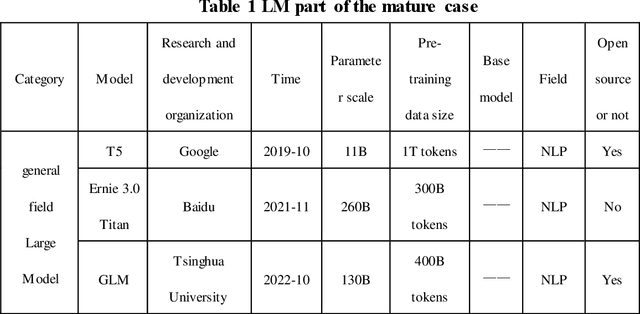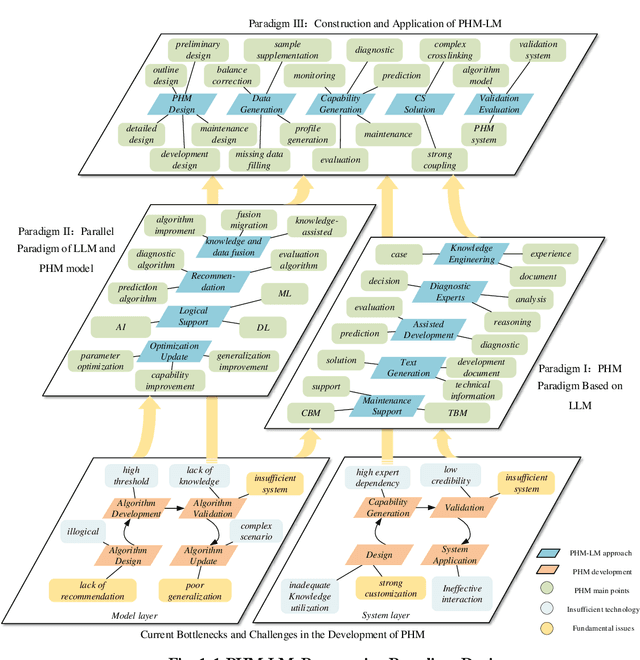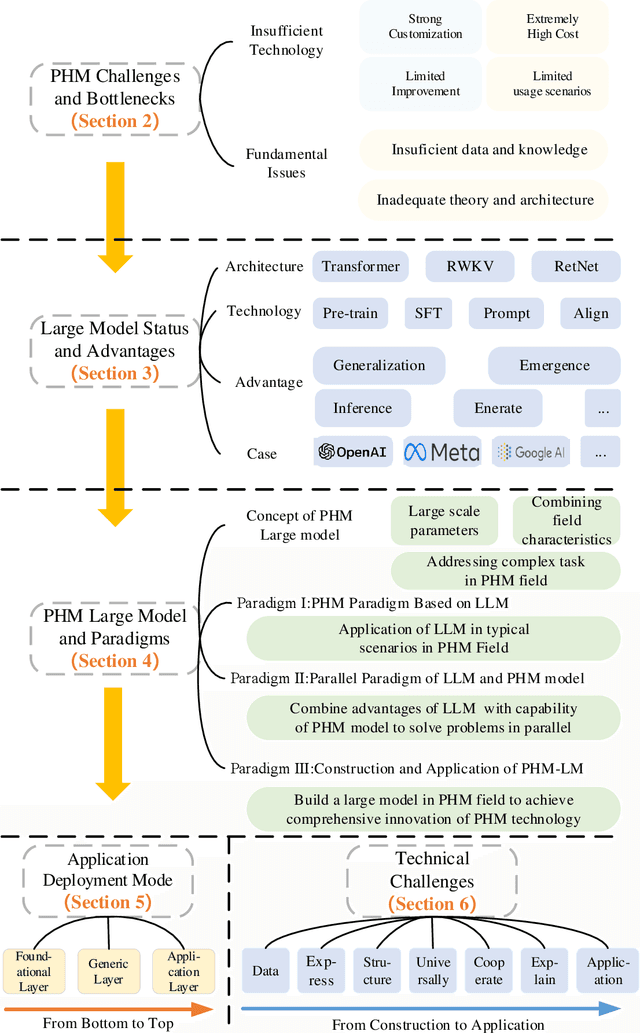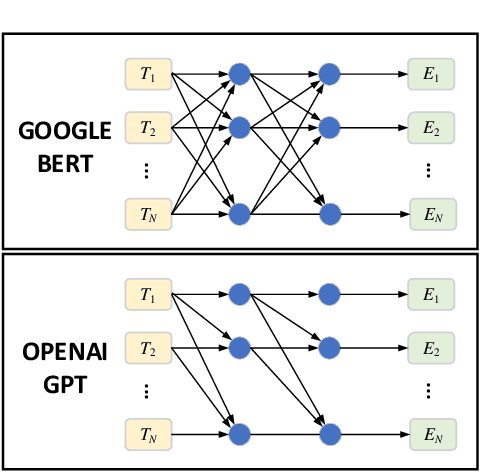Zhengduo Zhao
Pre-Trained Large Language Model Based Remaining Useful Life Transfer Prediction of Bearing
Jan 13, 2025



Abstract:Accurately predicting the remaining useful life (RUL) of rotating machinery, such as bearings, is essential for ensuring equipment reliability and minimizing unexpected industrial failures. Traditional data-driven deep learning methods face challenges in practical settings due to inconsistent training and testing data distributions and limited generalization for long-term predictions.
An Outline of Prognostics and Health Management Large Model: Concepts, Paradigms, and Challenges
Jul 01, 2024



Abstract:Prognosis and Health Management (PHM), critical for ensuring task completion by complex systems and preventing unexpected failures, is widely adopted in aerospace, manufacturing, maritime, rail, energy, etc. However, PHM's development is constrained by bottlenecks like generalization, interpretation and verification abilities. Presently, generative artificial intelligence (AI), represented by Large Model, heralds a technological revolution with the potential to fundamentally reshape traditional technological fields and human production methods. Its capabilities, including strong generalization, reasoning, and generative attributes, present opportunities to address PHM's bottlenecks. To this end, based on a systematic analysis of the current challenges and bottlenecks in PHM, as well as the research status and advantages of Large Model, we propose a novel concept and three progressive paradigms of Prognosis and Health Management Large Model (PHM-LM) through the integration of the Large Model with PHM. Subsequently, we provide feasible technical approaches for PHM-LM to bolster PHM's core capabilities within the framework of the three paradigms. Moreover, to address core issues confronting PHM, we discuss a series of technical challenges of PHM-LM throughout the entire process of construction and application. This comprehensive effort offers a holistic PHM-LM technical framework, and provides avenues for new PHM technologies, methodologies, tools, platforms and applications, which also potentially innovates design, research & development, verification and application mode of PHM. And furthermore, a new generation of PHM with AI will also capably be realized, i.e., from custom to generalized, from discriminative to generative, and from theoretical conditions to practical applications.
 Add to Chrome
Add to Chrome Add to Firefox
Add to Firefox Add to Edge
Add to Edge